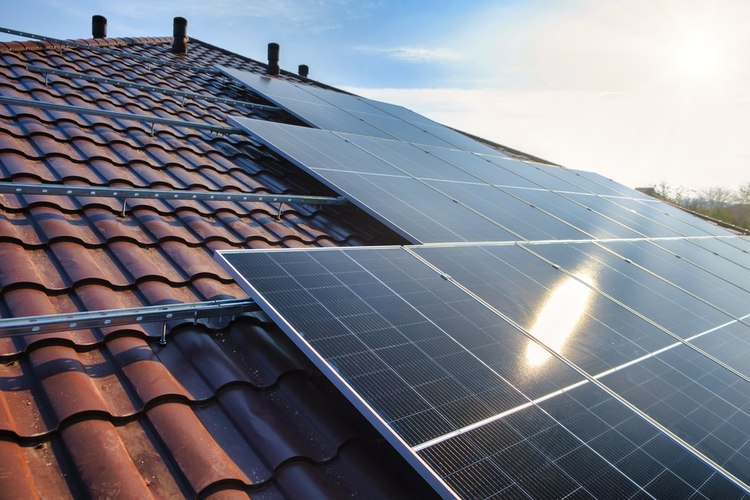The Rise of Solar Batteries: Powering Homes with Clean Energy
Solar energy has become increasingly popular as homeowners seek sustainable and cost-effective ways to power their homes. One of the most significant advancements in this field is the development of solar batteries, which are revolutionizing how households manage and store energy. This article explores the growing interest in home batteries, the rising popularity of solar energy storage, and new solutions for energy management in the home.

Why are households showing interest in home batteries?
The surge in interest for home batteries can be attributed to several factors. Firstly, as more homeowners install solar panels, they’re looking for ways to maximize their investment by storing excess energy for later use. This allows them to reduce their reliance on the grid and potentially lower their electricity bills. Secondly, with increasing concerns about power outages due to extreme weather events or grid instability, home batteries offer a reliable backup power source. Lastly, as electricity prices continue to fluctuate, having a home battery system allows households to better manage their energy consumption and costs.
Home batteries also appeal to environmentally conscious consumers who want to reduce their carbon footprint. By storing and using clean solar energy, households can significantly decrease their reliance on fossil fuel-generated electricity from the grid. This not only contributes to a greener lifestyle but also aligns with global efforts to combat climate change.
How is solar energy storage becoming increasingly popular?
The popularity of solar energy storage is on the rise due to several key factors. Technological advancements have made solar batteries more efficient, durable, and affordable than ever before. As production scales up and competition increases, prices for solar battery systems have been steadily declining, making them more accessible to a broader range of homeowners.
Government incentives and rebates in many countries have also played a crucial role in boosting the adoption of solar energy storage systems. These financial incentives help offset the initial investment costs, making it more attractive for households to install solar batteries alongside their existing or new solar panel systems.
Moreover, the increasing awareness of the benefits of energy independence and sustainability has driven more homeowners to consider solar energy storage solutions. As success stories and positive experiences from early adopters spread, more households are inspired to make the switch to solar-plus-storage systems.
What new solutions are emerging for energy management in the home?
The field of home energy management is evolving rapidly, with innovative solutions designed to optimize energy consumption and storage. Smart home technologies are at the forefront of this revolution, offering homeowners unprecedented control over their energy usage.
One of the most exciting developments is the integration of artificial intelligence (AI) and machine learning algorithms into home energy management systems. These intelligent systems can analyze household energy consumption patterns, weather forecasts, and electricity prices to optimize the use of stored solar energy. For example, they can automatically decide when to use stored energy from the battery and when to draw from the grid, ensuring the most cost-effective and efficient energy usage.
Another emerging solution is the concept of virtual power plants (VPPs). This involves connecting multiple home solar battery systems to create a network that can be collectively managed. VPPs can help stabilize the grid by providing energy during peak demand periods, potentially earning homeowners additional income by selling excess energy back to the grid.
How do solar batteries contribute to grid stability?
Solar batteries play a crucial role in enhancing grid stability, particularly as the share of renewable energy in the power mix increases. By storing excess solar energy generated during the day, batteries can supply power during peak evening hours when solar panels are no longer producing electricity. This helps to balance the load on the grid and reduce strain during high-demand periods.
Furthermore, solar batteries equipped with smart inverters can provide ancillary services to the grid, such as frequency regulation and voltage support. These capabilities help maintain grid stability and power quality, which is especially important as more intermittent renewable energy sources are integrated into the power system.
What are the economic benefits of installing a solar battery system?
The economic advantages of installing a solar battery system are becoming increasingly apparent to homeowners. While the initial investment can be significant, the long-term savings and potential return on investment are compelling.
| Benefit | Description | Potential Savings |
|---|---|---|
| Reduced electricity bills | Store excess solar energy for use during peak price periods | 30-60% reduction in annual electricity costs |
| Energy arbitrage | Buy grid electricity when cheap, use stored energy when prices are high | Additional 10-20% savings on electricity bills |
| Backup power | Avoid costs associated with power outages | Variable, depending on frequency and duration of outages |
| Potential income | Participate in grid services or energy trading programs | $100-$300 per year (varies by location and program) |
Prices, rates, or cost estimates mentioned in this article are based on the latest available information but may change over time. Independent research is advised before making financial decisions.
It’s important to note that the exact savings and benefits can vary significantly depending on factors such as local electricity rates, solar potential, battery capacity, and energy consumption patterns. However, as technology improves and prices continue to decrease, the economic case for solar batteries is becoming stronger for many households.
In conclusion, the growing interest in home batteries, the increasing popularity of solar energy storage, and the emergence of new energy management solutions are transforming how households consume and interact with energy. As these technologies continue to evolve and become more accessible, they promise to play a crucial role in creating a more sustainable, resilient, and efficient energy future for homes around the world.




